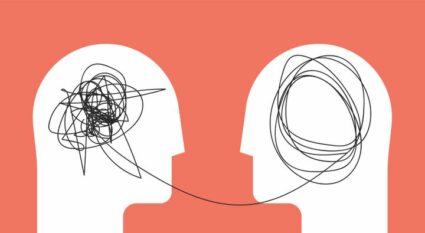

Unprocessed memories contain all the negative emotions, thoughts, and even the physical sensations that were present at the time of the event. When these memories are triggered, so too are the negative elements of the initial event, causing symptoms of PTSD or other mental health disorders.
While some people may seek to make peace with the past, and others continue on as if it never happened, aware of it or not, most continue to be negatively affected by their unaddressed trauma. This can lead to scores of difficulties affecting everything from relationships and current life events to impairing basic coping mechanisms.
EMDR, or Eye Movement Desensitization Therapy, is intended to change how the traumatic memory is stored in the brain, thereby lowering or even eradicating the distressing symptoms. Anyone who has suffered from past trauma can benefit from EMDR.
What to Expect During EMDR?
With the help of an experienced therapist, you’ll acquire some new coping strategies as part of your preparation. The next step is to identify the “target,” or the distressing memory you wish to concentrate on, as well as any negative thoughts, feelings, or physiological sensations associated with it. You’ll retain the recollection in your mind while also focusing on a back-and-forth movement or sound (such as your provider’s moving finger, a flashing light, or a tone that beeps in one ear at a time) until your distress subsides. This will last about 30 seconds each time, after which you will discuss how the exercise went for you. While holding the recollection in your mind, you will eventually focus on a good belief and feeling. Your clinician will re-evaluate your symptoms near the conclusion of therapy to see if you need to process any additional targets.
Does EMDR Work?

Keren Poirer, LCSW and Primary Therapist, shares her thoughts on why EMDR is effective: “I myself have experienced EMDR and it is quite transformational in the sense that you aren’t having a long dialogue about the trauma. You aren’t going into extreme detail about those traumatic experiences. And that in itself can be very comforting, giving a sense of safety that you don’t have to open that wound.”
Keren elaborates on EMDR’s unique power to enable the mind to heal itself, just as the body does—and how this incredible process can stop the cycle of distress associated with past trauma: “EMDR is amazing because it uses the individuals’ own natural ability to heal. Physically, if we have a wound or food poising – our body just automatically moves to heal that. Psychologically, our brain is no different – it wants healing. When we experience traumatic events, they often become fragmented in our brain. The trauma resides in a different part of our brain and gets “stuck,” and when past traumatic memories are “stuck,” it causes distress symptoms in the present. EMDR is really useful to address those distresses and even go back to what is causing them. It’s almost like you can keep targeting a weed, or you can dig underground and get it by the roots.”
Who Can Benefit from EMDR therapy?
EMDR therapy can be beneficial to people of all ages. Therapists use EMDR therapy to address a wide range of conditions and symptoms:
- Anxiety, panic attacks, and phobias
- Chronic Illness and medical issues
- Depression and bipolar disorders
- Dissociative disorders
- Eating disorders
- Grief and loss
- Pain
- Performance anxiety
- Personality disorders
- PTSD and other trauma and stress-related issues
- Sexual assault
- Sleep disturbance
- Substance abuse and addiction
- Violence and abuse
How Many EMDR Sessions do you Need?
Many clinicians advise weekly 50-90 minute sessions for about 1-3 months. However, after a few sessions, many people see a difference. The advantages of EMDR can continue long after your last session with your therapist.
Here at Scottsdale Providence, we believe in offering our clients the best range of evidence-based, research-backed treatment modalities to help them find lasting recovery from substance abuse, mental health and behavioral issues, and trauma. Get in touch to learn more.